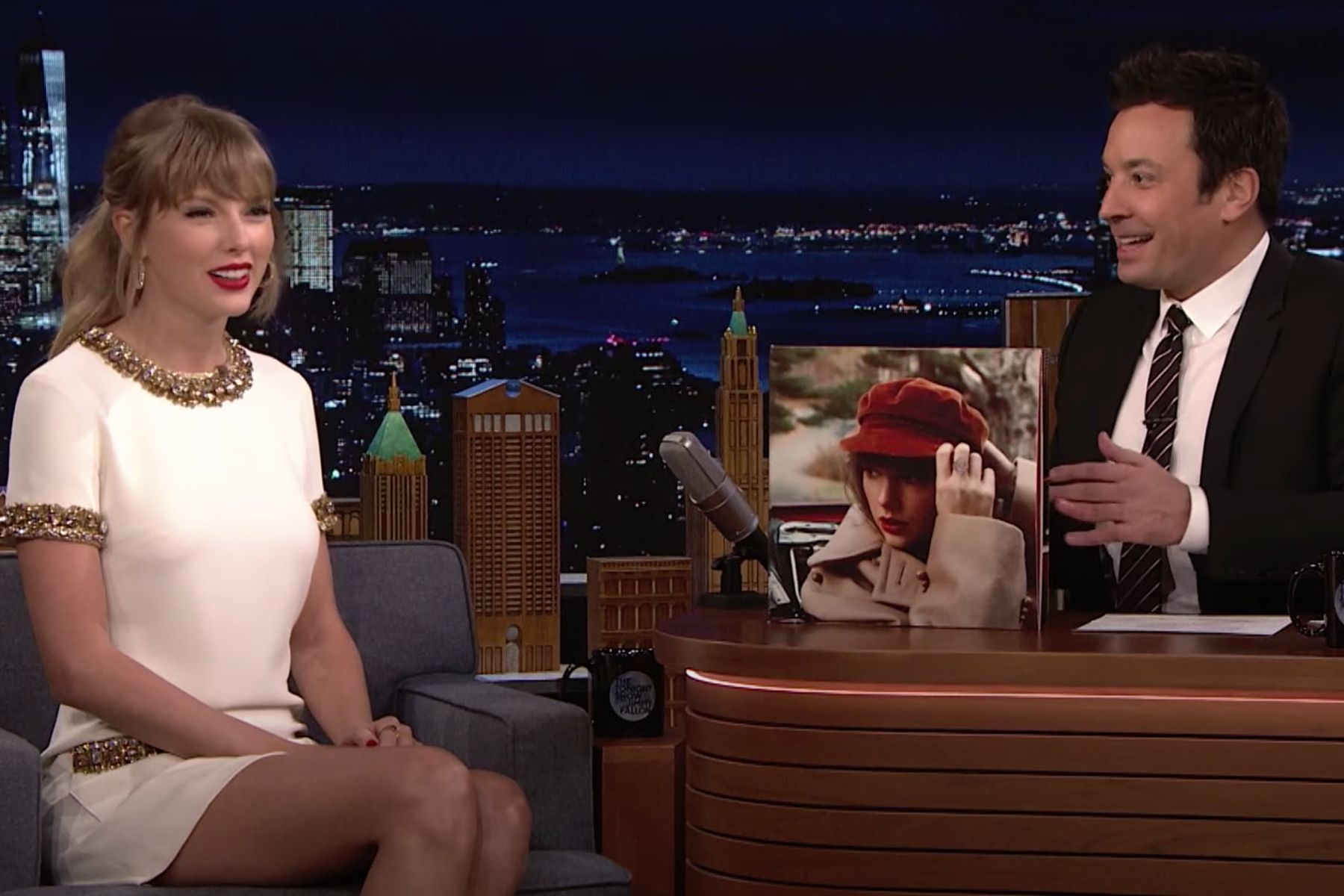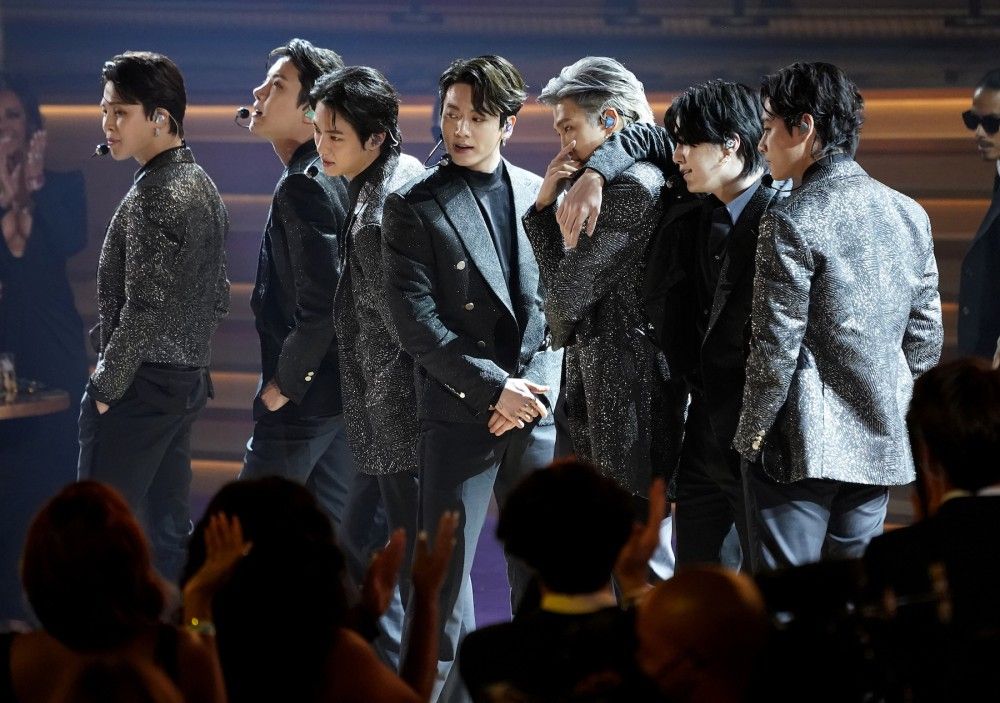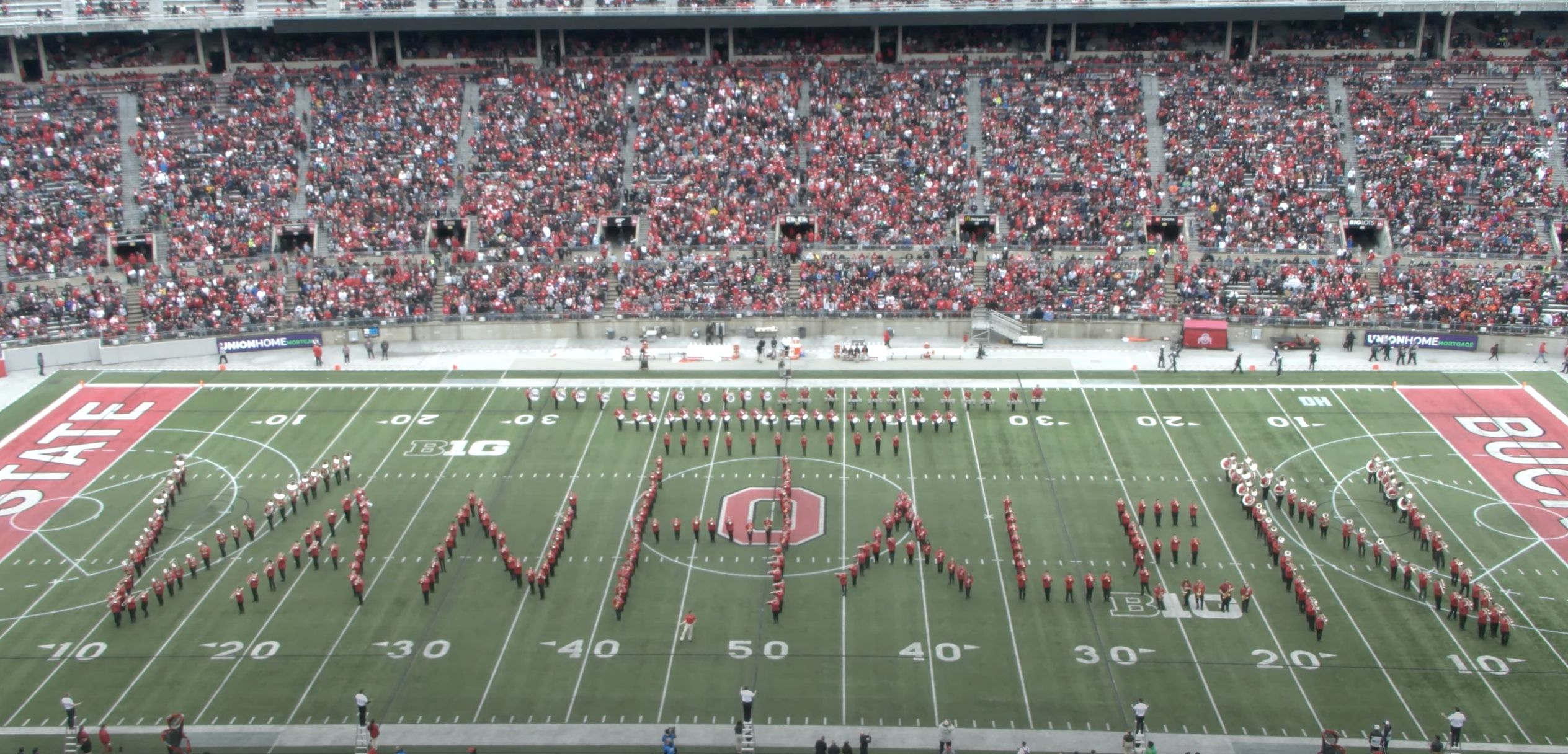
Helen Mirren on Superhero Movies, Tarantino Westerns, and Why She Got Tattooed
Many people have called Dame Helen Mirren a “goddess” throughout her life. Now the Oscar-winning actor gets to portray a literal one onscreen, and destroy an entire city block in the process. Shazam! Fury of the Gods, the sequel to the 2019 D.C. Comics superhero movie, finds Mirren playing Hespera, a mythological Greek deity who is attempting to wrest back the powers that she feels the do-gooder title character has stolen from her people. It’s a part that requires the gravitas of a Shakespearean veteran, the campy over-the-top-ness of a performer who once costarred in Caligula, and the ability to make you believe you’re watching someone capable of conjuring up a divine C.G.I. wrath. It also means Mirren gets to do something she truly loves, which is kick ass onscreen. “God bless America,” she says, with a hearty laugh. “Hollywood has been great about giving me a lot of Helen Mirren-kicks-ass roles.”
The DCEU is just one of several franchises which will be graced by Mirren’s presence this year. She just finished the first season of 1923, the prequel spin-off to Taylor Sheridan’s juggernaut series Yellowstone, and is reprising her role as “Queenie”, “the mother” in Fast X, a.k.a. the tenth Fast & Furious movie. She’ll also be playing Golda Meir in a biopic hitting theaters sometime in 2023, which attests to Mirren’s love of mixing things up.
Over the phone from Los Angeles, Mirren spoke to us about why she thinks superhero movies have become so popular, the love letter she once wrote Queen Elizabeth, her love of a certain Quentin Tarantino Western, what that mystery tattoo on her hand means, and a lot more.
You play an ancient goddess in the Shazam sequel. Given your choice of mythological deities to embody, which would you become?
Maybe Venus? One of the powerful ones. But even back then, the female deities didn’t have it quite as good as the male gods, you know. Not even a goddess could catch a break.
There’s a theory that superhero movies are today’s version of a Shakespeare play — they provide lessons about power and responsibility.
Rather than a Shakespeare play, I would make the connection with superhero movies and the ancient Homeric poems, the Nordic poems, those kinds of stories. They come from the tradition of stories that were passed down by word of mouth, before people learned to read and write. A lot of Greek mythology is still around because there were people sitting around a fire or a table, literally retelling these stories about unbelievable warriors who fight a battle and kill everybody. Shakespeare made it much more subtle, complicated and more real. These are more like, “Remember when you told that story of an ancient Celtic hero who killed 50,000 people in battle? That was such a great night around the campfire. We loved that. Let’s have that one again!”
You’ve played both Queen Elizabeth I and Queen Elizabeth II, as well as Catherine the Great. What did those roles teach you about power?
That delegation is important. Elizabeth I was the opposite of Trump. She listened to opinions different from her own to get a complete picture of things, and that’s why she’s gone down in history as one of the greatest leaders of all time. Well, in British history. British people tend to think their history is the only history that matters.
Lucky for you, Americans don’t think about our history that way at all.
Right. [Laughs.] I think everyone tends to think they’re the center of the universe. Because what else do we know? We only live in our [own] bodies and minds, in our communities and cultures. And our professions. Doctors think they’re the center of the universe. Lawyers think they’re the center of the universe. Musicians? They believe people can’t wait to hear their new albums and when they’ll be on tour.
And actors? Do they think they’re the center of the universe?
Of course. [Pauses.] But we’re not as bad as musicians.
Did playing Queen Elizabeth II change your idea about who she was?
I grew up in a very anti-monarchist household, so that was always my residual lazy attitude. This is obviously long before The Crown and all of that — now that poor family is just like… Oh, God! They might as well just walk around naked! But none of that happened at that point.
I actually wrote her a letter: “We’re doing this film. It’s about a very painful period in your life, and I’m playing you.…” I didn’t say [gushing fan-girl voice] “I just want to tell you how much I love you!” I just said, you know, “I have a huge amount of respect for you, and for your work through your lifetime.” It was after I’d done a lot of research and kind of fallen in love with her. I got a formal letter back saying [pinched nasal voice], “The queen has read your letter with great interest. Thank you so much.” [Laughs.]
Who are your heroes?
I encounter heroes in the newspapers, when I read stories of people who do extraordinary or brave or authentic and energetic things. Like Usain Bolt [laughs]. You know, impress me and excite me and make me think life’s worth living.
You’ve said before that you hate Westerns, yet you signed on to Taylor Sheridan’s Yellowstone spin-off, 1923, without a script. What made you say yes to a Western set in Montana without even knowing where it was going?
I loved Taylor Sheridan’s films. I loved Wind River. I knew that it wouldn’t be the normal kind of Western, the kind that I don’t usually like. Which, I have to say, is an extremely old fashioned idea of a Western — the sort of 1950s version where the women were either teachers or madams at a brothel, and there was nothing in between. I knew 1923 wouldn’t be like that. [Pause.] I did love the Western that Quentin Tarantino did. I forget what it was called.
Django Unchained?
No, no, no. Not that one.
The Hateful Eight?
Yes! Yes, that one.I thought it was fantastic. That’s my kind of Western, with characters that are incredibly flawed and interesting and violent. You know, the survivalist nature of The Hateful Eight, it’s just incredible.
Why do you think the Yellowstone shows have struck a chord with audiences?
It’s American history. I mean, I see it as… I’m going to sound incredibly pretentious here.
It’s OK, go for it.
It is, in a way, America’s War and Peace. You know, it’s that huge arc of history told through a family’s perspective, in a raw and rather uncomfortable way. These people are incredibly flawed, they make very bad decisions, they’re cruel, they’re greedy, arrogant and self-interested — and they’re the heroes!
Taylor is kind of a genius, and going back to you original question: I did sign up for it without having read a script. I wasn’t used to doing television this way, I had no idea what I was walking into, and I still don’t quite understand it. But that’s exciting! It’s how a certain kind of television show works now, where you don’t know if your character is going to live or die from one episode to the next. You have no idea until the next script arrives. It’s a lot more like real life. I don’t know what’s around the corner most days. I know the plumber is coming by around 10 a.m. tomorrow, but apart from that, I have no idea what’s going to happen to me.
You’ve been acting since primary school and joined the National Youth Theater in London at 18. Did you immediately think, “I’m an actor” — or was it more of a gradual thing, where you didn’t feel like you could call yourself an actor until you’d done certain roles or learned the craft a bit.
Honestly, I always felt like this was supposed to be what I was doing. The act of engaging in this imaginative world was a revelation to me as a young person. And I became absolutely committed to that. I didn’t know that I was ever going to be able to be a professional actress, because my life was a million miles away from all of that. And the process of learning how to act on a stage and then learning how to act for film, that was a whole other learning process. But I knew that it was what I was meant to be doing. I was thrown in the deep end in the sense of, I was already playing sort of leading roles onstage and in Shakespeare at a young age, and that’s about the hardest thing that there is to do as an actor. So I had a bit of a learning curve right there.
You do a nice mix of prestigious dramatic roles and Helen Mirren-kicks-ass roles.
Yes! For which I say: God bless America. Hollywood has been great about giving me a lot of Helen Mirren-kicks-ass roles. I always try to mix it up. That’s the fun of doing this.
Did you find that people began treating you differently after you became a Dame Commander of the British Order in 2003?
No one except for British Airways. Now they say, “Good morning, Dame Helen Mirren!” That is quite lovely.
What’s the best and worst part of success?
The best part is economic independence. I grew up in a family that, economically, was always on the edge. So that is fantastic. The worst? The constant fear that utter failure is right around the corner. The pendulum always swings back. It’s just a question of when, not if.
Thank your not saying, “Having to do interviews.”
[Laughs.] You got lucky.
What’s your biggest vice?
Well, what you may consider a vice I might consider a virtue, so … my mantra is “Do everything. But don’t do too much of anything.”
Do you have any regrets?
So many it’s ridiculous. My biggest is that I never learned to deal with my lifelong procrastination. I wish I’d done that sooner in my life.
What are the most important rules you live by?
I have a tiny tattoo on my hand, which are these interlocking V’s. It has a South American Indian meaning that translates to a more sophisticated version of “Love thy neighbor.” You know, that someone can have be the opposite of who you are, but still have equal meaning to you.
We started off this conversation talking about being the center of one’s own universe, right? But here’s this symbol I have that helps me think about getting out of the center of my universe and trying to imagine things from the center of someone else’s. I’m so glad I got it, especially when I have to glance down at it to remind myself about what it means when someone is being so annoying.



